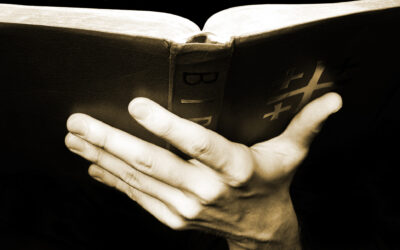Methodists and Baptists are both protestant denominations and as such, they have a couple of similarities. However, the two are also distinct as they have different styles of worship, doctrine, leadership structure, and many other differences. Before we take a closer look at some of these differences, let’s first have a brief overview of Methodists and Baptists.
A brief overview of Baptists
Baptist churches trace their roots back to the 17th-century English Separatist movement. Baptists believe in adult baptism and view it as a sign of someone’s faith and commitment to the faith. They emphasize individual devotion to God, congregational autonomy, and the infallibility of scripture. Baptists believe that church and state should be separated and they also value the principle of soul liberty.
A brief overview of Methodism
Just like Baptists, Methodists originated as a movement within the Church of England. The movement began in the 18th century and it was led by two brothers; John Wesley and Charles Wesley. At the heart of Methodism is the call to spiritual discipline, personal piety, and personal devotion to God. Methodists believe in social justice and they are known for participating in activism and charitable work. The methodist doctrine focuses on grace and the fact that salvation is for all.
The Main Differences Between Methodists and Baptists
As we have established, Baptists and Methodists both trace their origins to the Church of England. But even though they have common roots, they sprouted into distinct entities that differ in the order of worship, sacraments, congregation autonomy, and liturgy. Let’s have a look at each of these elements in more detail:
Order of Worship
Methodists have a structured worship style of worship although different congregations may have slight variations. However, the general order of worship includes gathering and prelude, the opening hymn followed by a call to worship, prayer and confession, scripture reading and sermon, response and invitation, sacraments and rituals, offering, and intercessory prayer, hymns, and benediction.
Baptists believe in congregational autonomy and as such, the order of worship will vary from congregation to congregation. However, there are some common elements in the Baptist worship style. These include congregational singing (hymns or contemporary music), prayer, scripture reading and sermon, invitation and response, hymns and worship music, and benediction.
Sacraments
Both Methodists and Baptists observe two main sacraments – water baptism and the Lord’s supper. However, the two may differ in how they approach and understand the sacraments. For instance, Methodists believe in both infant and adult baptism as a symbol of cleansing from sin. They believe in both immersions as well as sprinkling of water as acceptable forms of baptism. On the flip side, Baptists only practice adult baptism and they emphasize that only a believer that has accepted the Lord as savior should be baptized. Additionally, they believe that baptism must be only through immersion in water.
The methodists and Baptists seem to somewhat agree on the sacrament of the Lord’s supper although there is a slight difference. For both denominations, bread, and wine (or grape juice) are given as a way of remembrance of the death of Christ. The main difference between the two is that Baptists insist that only baptized believers who are in right standing with God can partake of the Lord’s table.
Congregational autonomy
One of the main differences between Baptist and Methodist doctrines is the issue of congregational autonomy. For Baptists, each congregation is treated as an autonomous unit which means that they are at liberty to govern their affairs without any external influence. On the flip side, methodists do not believe in congregational autonomy and they take a centralized administrative approach. That said, there has been a rising demand for autonomy and the Book of Discipline of the United Methodist has even defined a framework for covenanting autonomous methodist churches. But congregational autonomy is still considered not a core part of the tenets of Methodism.
Liturgy
The Methodist liturgy is largely influenced by Anglican liturgical practices. John Wesley often used the Anglican Book of Common Prayer but he also incorporated extemporaneous prayers in his services. The Methodist liturgy was widely influenced by the liturgical movement. This resulted in the publishing of The Methodist Service Book (1975), The Methodist Worship Book (1999) in The Book of Worship (1965), the Ordinal (1980), and the United Methodist Hymnal (1988). The liturgical books give guidelines on how worship services should be conducted including the hymns, prayers, and other liturgical elements.
The doctrine of autonomous congregations has also had a significant impact on the style of worship in Baptist churches. How a Baptist church conducts its service will vary significantly from what another Baptist church does. For instance, some Baptists may choose to use a non-liturgical approach while others may choose to incorporate liturgical elements in their services. Even though liturgical Baptist churches are on the rise today, it is worth noting that there is no set liturgy that can be universally termed as a Baptist.
The table below summarises these key differences:
| Methodist | Baptist | |
| Order of Worship | Has a structured approach to worship that is somewhat similar across the board | Each congregation is autonomous and is therefore at liberty to have its own order and style of worship |
| Sacraments | Observe both baptism and holy communion. Both children and adults can be baptized and both immersion and sprinkling of water are allowed. | Observe both water baptism and holy communion. However, only adults are baptized and the only permitted baptism is immersion. Additionally, only adults who have been baptized and are in the right standing with God and the church are allowed to take the sacrament of communion. |
| Congregational autonomy | Methodists have a structured and centralized organizational structure | Each congregation is autonomous and can make decisions without the influence of external ecclesiastical leaders. |
| Liturgy | The methodist liturgy borrows heavily from the Anglican liturgy. The liturgical books give directions on how service should be conducted | Some Baptist churches incorporate some liturgical elements while others use a non-liturgical approach. There is no standard Baptist liturgy. |
Conclusion
Understanding the differences between Methodism and Baptists is important as it can help you decide which denomination resonates with your theological views. As we have established, Methodism places a lot of premium on Wesleyan theology, the work of the Holy Spirit, and personal holiness. On the other hand, Baptists believe in congregational autonomy, the believer’s baptism, and the authority of scripture. There are many more differences between the two denominations but these form the bedrock of the different doctrines.





